As New Englanders ensure they have enough firewood to last for this especially cold winter, many are left wondering if their beloved Red Sox will sign J.D. Martinez or any other power bat to join new manager Alex Cora in the dugout or, instead, will the team that hit the fewest home runs in the American League last season be left out in the cold. The chill coming from baseball’s proverbial offseason – the Hot Stove – in Boston can be felt across nearly every Major League city. Even though Jeffrey Loria is no longer involved in Major League Baseball after selling the beleaguered Miami Marlins to a new ownership group headlined by Bruce Sherman and Derek Jeter, he continues to have an impact on this year’s rendition of the Hot Stove. The impact on this year’s painfully slow developing free agent market can be traced all the way back to his acquisition of the Marlins.
The Dispute:
When MLB purchased the Montreal Expos from Loria and also gave him a $35MM loan to assist in his purchase of the then Florida Marlins in a complicated merry-go-round of franchise ownership transactions,[1] the Expos were eventually sold to Ted Lerner and renamed the Nationals upon their move to Washington, D.C. To induce the Baltimore Orioles to cede their territorial rights over the Washington, D.C. metro area, which would clear the last hurdle for MLB to relocate the Expos to the profitable economic market, MLB facilitated the creation of a new regional sports network (RSN) exclusively owned by the Nationals and Orioles, with the Orioles owning no less than a two-thirds interest.[2] In turn, that RSN – the Mid-Atlantic Sports Network or MASN – owns the television broadcast rights to both the Nationals and Orioles which means that the Orioles own at least two-thirds of the profits from televised broadcasts of Nationals games in the Baltimore/DC markets for perpetuity. That was the price MLB and the Nationals paid to the Orioles to access the DC market.
To complicate matters, for revenue sharing and cash flow purposes MASN must “purchase” the rights to the teams’ televised broadcasts. Essentially the rights fees MASN pays to each team constitutes an advance on the profits of the RSN that are insulated from the profit sharing dictated by ownership percentages. As a result, in 2018 the Nationals save eighty-one cents on every dollar earned through rights fees as opposed to profit sharing.[3] And this is the reason why the Nationals, the Orioles, and MLB are embroiled in litigation.
Beginning in 2012 and every five years thereafter the Nationals and Orioles were to negotiate in good faith the fair market value of the rights fees the clubs were to receive for the next half decade. If the clubs were unable to reach an agreement then they would arbitrate the matter before the Revenue Sharing Definitions Committee (RSDC). The RSDC is an internal MLB committee composed of club owners, presidents, or other high-level executives.
After being unable to reach an agreement on the rights fees the Nationals would receive the matter proceeded to arbitration before the RSDC. The Nationals retained Proskauer Rose as their legal counsel for the arbitration despite Proskauer’s past representation of MLB and many of its member clubs, including those with representatives serving as arbitrators on the RSDC and the Orioles, which the Orioles considered a conflict of interest. The Orioles continually objected to Proskauer’s continued representation of the Nationals throughout the process and even requested that MLB disqualify them as the Nationals’ legal counsel, which was refused. In the arbitration before the RSDC, MASN, effectively the Orioles since the team owned a controlling interest in the RSN, offered to pay rights fees averaging $39.5MM for the 2012 to 2016 seasons, while the Nationals asserted that its television broadcasts rights were on average worth an estimated $118MM per season for the same period. On June 30, 2014 the RSDC issued a written decision valuing the Nationals rights fees at $59MM on average for those five seasons. MASN’s dissatisfaction with the RSDC’s decision prompted the RSN, on behalf of itself and the Orioles, to commence litigation in an effort to have the RSDC’s arbitration decision vacated.
Litigation:
On November 4, 2015, the court ruled on MASN’s motion to vacate the arbitration award. The court agreed with MASN that “evident partiality had resulted from the Nationals’ representation by Proskauer” which caused the proceedings before the RSDC to be “rendered fundamentally unfair by (i) Proskauer’s representation of MLB, its executives and closely related entities in nearly 30 other matters and interests associated with all three arbitrators, and (ii) MLB, the arbitrators, the Nationals and/or Proskauer’s failure to take reasonable steps to address MASN and the Orioles [sic] concerns over Proskauer’s involvement.” The court denied MASN’s request that the court mandate a second arbitration before an independent panel unaffiliated with MLB. The Nationals appealed the court’s finding of bias and MASN appealed the court’s refusal to require a new arbitration outside of MLB.
On appeal, the Appellate Division for the New York State Supreme Court found that the trail court was correct in vacating the RSDC’s arbitration decision based on evident partiality. The court reached this decision on July 13, 2017 because
“the same lawyers in the same firm were representing interests of the arbitrators and MLB at the same time as they represented the Nationals in the arbitration is an objective fact inconsistent with impartiality. The arbitrators had a duty to, but did not, investigate or disclose their relationships with Proskauer, and MLB failed to exercise what power it had to ensure confidence in the fairness of the proceedings in light of MASN’s stated concerns.”
The appellate court also upheld the trials court’s denial to require any future arbitration be held in a forum independent of MLB.
MASN and the Orioles appealed the appellate court’s refusal to require forum shifting for any future arbitration regarding the Nationals’ rights fees, but New York’s highest court, the Court of Appeals, has dismissed the initial attempt for continued judicial review. MASN attorney Thomas J. Hall of Norton Rose Fulbright stated that “MASN will continue to press its appeal on the question of whether MLB is disqualified from rehearing the parties’ right fees dispute” since the Court of Appeals decision “just means that MASN’s appeal should proceed through a different procedural route.” Hall’s statements indicate that the protracted legal battle will continue for the foreseeable future. Once the litigation has ended the parties will most likely have to reappear before the RSDC (unless MASN convinces the Court of Appeals to require a neutral arbitration forum without oversight from MLB) which will then decide on the rights fees the Nationals are owed for the 2012 through the 2021 seasons.
Impact on the Hot Stove:
This continuing litigation will prevent both the Orioles and Nationals from conclusively knowing what revenues to expect from their ownership stakes in MASN and the rights fees to be respectively paid out or received. The Nationals ability to extend long-term financial commitments to its own players or free agents is limited by the $39.5MM in rights fees MASN has been paying the Nationals since 2012. It is likely that once litigation is complete and the RSDC issues its decision the annual value assessed for the decade’s worth of rights fees MASN owes to the Nationals will eclipse an annualized payment of $39.5MM. As a result, the Nationals will eventually receive a lumpsum payment from MASN to make up for the depressed rights fees it has received, but that means the Nationals do not have the ability to spend that money now. Thus, they have taken to structuring player contracts with deferred payments in anticipation of receiving those funds in the future. There is a limit to this approach otherwise the club risks overextending itself with current and previous player salary obligations in the future.
MASN and the Orioles have to practice prudent savings to ensure that if the Nationals receive a favorable ruling on the value of their television broadcast rights fees, either from the RSDC or an arbitration panel unaffiliated with MLB, there is enough cash on hand to pay the arbitration award that undoubtedly grows every year as regional television rights fees in baseball increase season after season. This prevents MASN from distributing all of its profits (after paying rights fees) to the Orioles and Nationals as the owners of the RSN.
Given the Orioles’ lack of starting pitching depth and the National’s history of activity in free agency, their lack of participation[4] in this year’s free agent class speaks volumes with the developments in the MASN litigation looming large. But even more importantly, it’s the lack of perceived effort to reach extensions with their own young stars that has perplexed the baseball world. The assumption is that the Orioles’ Manny Machado and the National’s Bryce Harper are destined for free agency in 2019 to maximize their earning potential.
However, the Nationals locked up their last homegrown star represented by Boras when they signed Stephen Strasburg to a seven-year extension, so Boras’ representational philosophy should not prevent an extension for Harper. Looming behind Harper, homegrown third baseman Anthony Rendon had a career year in 2017 and is also an extension candidate as he is due to hit free agency in 2020. Fifty miles north, with outfielders Adam Jones and Nick Markakis as examples, the Orioles have shown a willingness to extend young talent before reaching free agency. Considering the revenue streams tied to a dominant ownership interest in MASN, affordability should not be the driving factor why the Orioles have not reached extensions with Machado or second baseman Jonathon Schoop.
When the Orioles publicly dangled Machado on the trade market this winter but failed to trade him, there were two likely consequences. First, the availability of a premier player on the trade market considerably slowed a relatively weak free agent market for hitters. Teams will wait for the dust to settle on such a player before allocating precious dollars in pursuit of other talent. Second, unless the Orioles were overwhelmed by the offered return for trading Machado their steadfastness in retaining the player indicates either a certain level of stubbornness, or, more likely in a billion dollar business, that they value his contributions for the upcoming season and believe they have the wherewithal to re-sign him. Given the value of the Nationals and Orioles television rights fees and the profits those rights provide MASN, the Orioles ability to retain Machado for the long term cannot be discounted.
Although both organizations should have the financial ability to retain the faces of their franchise, the reality is that until each are provided with the cost certainty afforded by reaching a resolution on the value of the Nationals’ rights fees neither organization may be able to commit to the dollar amount or length of contract Harper and Machado will command. With major roster decisions dependent upon the outcome of this litigation, settling the dispute would be the best solution for both teams but that is an unlikely result. The dispute over the rights fees MASN should pay the Nationals is impacting the Nationals and Orioles ability to commit to Bryce Harper and Manny Machado, respectively. The twenty-eight other teams and the current crop of free agents would certainly benefit from better understanding the likelihood of two of MLB’s top players hitting free agency in 2019 and the reallocation of dollars that would result. One thing is certain, MLB never anticipated the impact its ownership and relocation of the Expos would have over the entire industry nearly sixteen years later.
[1] Loria bought the Marlins from John Henry, the current owner of the Red Sox, enabling him to purchase the Boston franchise.
[2] The Nationals ownership percentage in MASN was initially 10%. Beginning in 2010, that ownership percentage increases 1% a year until 2032 at which point the Nationals ownership in MASN will be capped at 33%.
[3] The increased revenue the Nationals recognize through rights fees is actually less than 81₵. Rights fees are subject to MLB Revenue Sharing of 31%, so the Nationals only keep 69₵ of every $1 in rights fees from MASN. That is still a far better return than they would receive in profit sharing during any particular season (a maximum of 33₵ starting in 2032).
[4] The Nationals re-signed two players coming off their own roster (RP Brandon Kintzler and INF Howie Kendrick) and signed 1B Matt Adams formerly of the Braves. The total reported outlay for the three players is $21MM over five aggregate seasons. The Orioles have signed no free agents.
 The Sports Esquires Putting Sports on Trial
The Sports Esquires Putting Sports on Trial
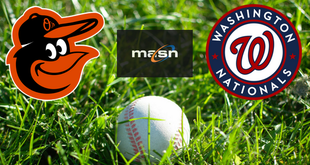

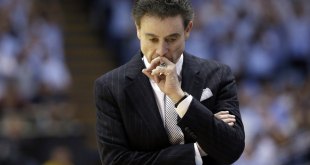
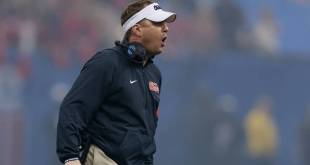
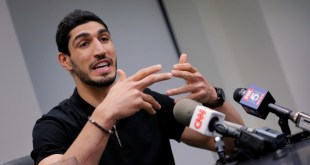
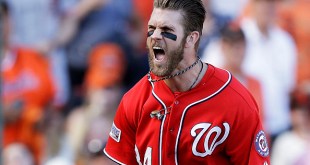
Manny Machado is not a Boras client. Dan Lozano is his agent.
Thanks!